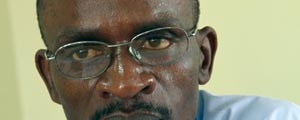
Climate change is a principal development challenge for the country. Actually, Meteorological records demonstrate that Zimbabwe is already experiencing climate changes — more variable rainfall, and more frequent and extreme weather events including droughts, floods and tropical storms.
View Point with Wisdom Mdzungairi
The Inter-governmental Panel on Climate Change (IPCC) projections for sub-Saharan Africa suggest that increased water stress, decreased yields from rain-fed agriculture, enlarged food insecurity and malnutrition, and the spread of arid and semi-arid land are all likely.
When in one of my weekly instalments indicated that these unpredictable environmental conditions were expected to adversely affect several sectors in the country including agriculture, water and health; and to reshape the context for infrastructure and energy provision, human settlements and gender-related development, the response was kind of mixed.
Despite the responses, I still call for the training of MPs so that they understand the meaning of global warming in total and its potential to slow economic growth in the country. By the way, it’s not only Environment minister Francis Nhema’s baby or that of his secretary Florence Nhekairo, but everybody’s responsibility.
In its recent briefing, the International Institute for Environment and Development (IIED) concluded that Zimbabwe’s climate change strategy should focus on urban communities, give a greater role to civil society participation, and learn lessons and gain experiences from other highly vulnerable countries.
The research by local NGO Zero Regional Environment Organisation (Zero) and the UK-based IIED said taken as a whole, climate variability and change pose a significant threat to sustainable development and poverty reduction in Zimbabwe.
These significantly challenge Zimbabwe’s ability to meet the Millennium Development Goals (MDG). Although other sub-Saharan Africa regions may be affected by climate variability and change, Zimbabwe is particularly vulnerable due to its heavy dependence on rain-fed agriculture and climate-sensitive resources.
- Chamisa under fire over US$120K donation
- Mavhunga puts DeMbare into Chibuku quarterfinals
- Pension funds bet on Cabora Bassa oilfields
- Councils defy govt fire tender directive
Keep Reading
Climate change-induced water stress is sure to intensify the existing problems of declining agricultural outputs, decreasing economic productivity, poverty and food insecurity.
The research by Donald Brown, David Dodman and Shepard Zvigadza said the challenge will not only affect farmers directly, but will also have severe effects on food availability and pricing for a growing urban population. Consequently, climate change poses a major threat to sustainable development at the micro and macro-levels.
Interestingly, the analysis and conclusions in the IIED policy brief draw on a series of background research papers and ongoing discussions with civil society organisations conducted as part of an IIED project on information and advocacy for climate change adaptation in Zimbabwe.
IIED also recommended the training of development practitioners and MPs interested in supporting more effective adaptation activities that reflect the needs and priorities of vulnerable individuals, households and communities.
These call for greater involvement of civil society in developing national policy, and a stronger focus on urban vulnerability. Zvigadza said: “The climate has already begun to change, with more variable rainfall and more frequent and intense extreme weather events. This makes work on a comprehensive strategy for adaptation all the more urgent.”
According to the research, MPs often misrepresent that only 20%-30% of the population is urban but, thanks to rapid urban growth in recent years, the true figure is up to 50%.
Precisely, a continued focus on rural areas will mean that Zimbabwe misses opportunities in urban areas and could face yet bigger challenges there as global warming takes hold.
Civil society organisations (CSOs) can also help to close the gap between vulnerable people and the MPs and planners whose job it is to protect them. The CSO’s knowledge and skills — and their connections with the most vulnerable communities — make them critical partners for MPs to work with as they design, implement and evaluate climate change projects. Besides, Zimbabwe shares many vulnerability traits and climate change challenges with other nations, but is not formally listed by the United Nations as one of the Least Developed Countries (LDCs) in the world.
The LDCs have generated many important lessons on how to plan for, and finance adaptation activities, and the country could learn from these and other highly vulnerable countries to prepare more effectively for climate change.
Really, let us acknowledge the problem and deal with it.











